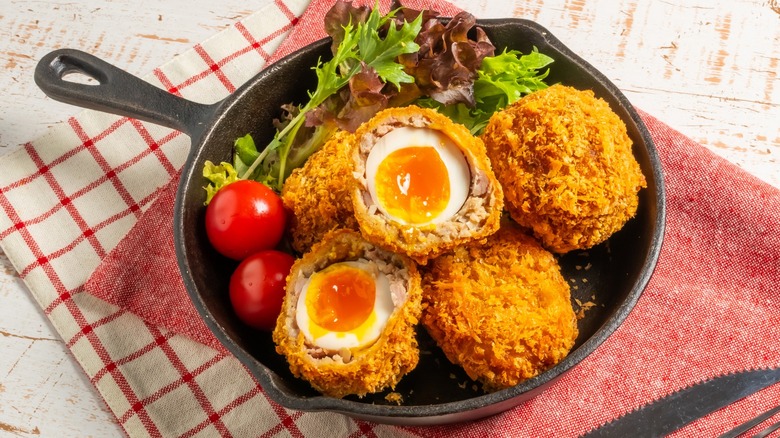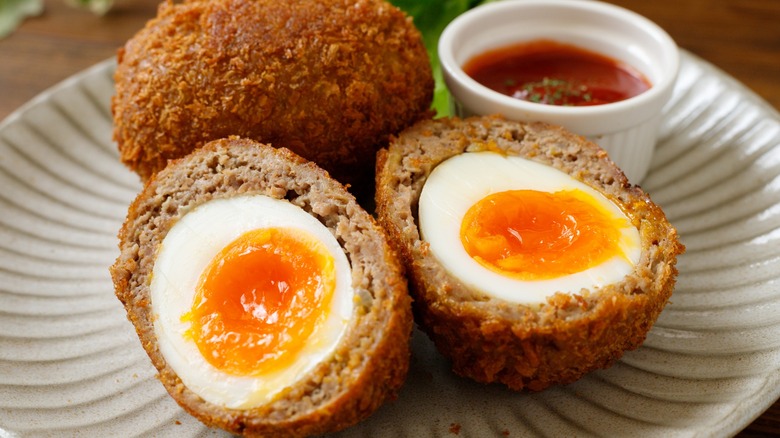It's Important To Consider Timing When Making Scotch Eggs
Scotch eggs are traditional British pub fare consisting of a hard-boiled egg wrapped in pork sausage with a crisp, deep-fried breadcrumb outer layer. Much like other traditional food in England, they can be quite hearty (you probably need only one), and also utterly and delectably satisfying. Cooked with care, Scotch eggs make up a protein-packed dish that can serve as a portable snack, satisfying appetizer, or light meal — an all-in-one breakfast in an ovoid-shaped flavor bomb. However, the last thing you want is to bite into this wonderfully dense ball of protein, only to be met with a powdery, overcooked egg. That's why if you're making Scotch eggs at home, it's important to consider your timing in order to get them just right.
Though they may seem like a challenge at first blush, making Scotch eggs at home is not as veiled in mystery as their origin. (Hint, they're not from Scotland. Some say they were originally called "Scotties," while others claim them to be "scotched eggs," a term whose exact translation appears to be up for some debate.) The process entails first hard boiling an egg, letting it cool, and peeling it. Then, the egg is encased in a layer of uncooked sausage before being dipped in an egg-flour mixture and breaded. Last, it's deep-fried to golden brown perfection. (Sticking it in the oven works too.)
How to time your egg boil when making a Scotch egg
The problem with Scotch eggs comes with determining how long to boil the eggs. This is because eggs continue to cook during the deep frying (or baking) stage, paving the way to an unwanted rubbery texture, the aforementioned powdery yolk (rather than the lusciously coveted jammy yolk), and an unappetizing but harmless gray-green cast. Add to this that some prefer their yolks runny or fully cooked but not overcooked, and you may have to juggle several factors in determining your pre-cooked boil time.
If you prefer them to have a food porn Instagram-worthy presentation, complete with a gooey-yolk shot, you'll want a mere 4-minute boil time. On the flip side, if you want the egg to be hard-boiled, shoot for a 6-minute boil. Whichever option you choose, be sure to immediately submerge the eggs in cold water to stop the residual heat from continuing to cook them. Allow the eggs to cool completely before carefully peeling. Using older (but not rotten) eggs, that float in the "float test," makes peeling much easier.
Scotch eggs are traditionally eaten both hot and cold to scrumptious effect. They can last in the refrigerator for as many as three days, so making a batch ahead of time for use throughout the week can prove to be a real time-saver as you run out the door for work in the morning.

